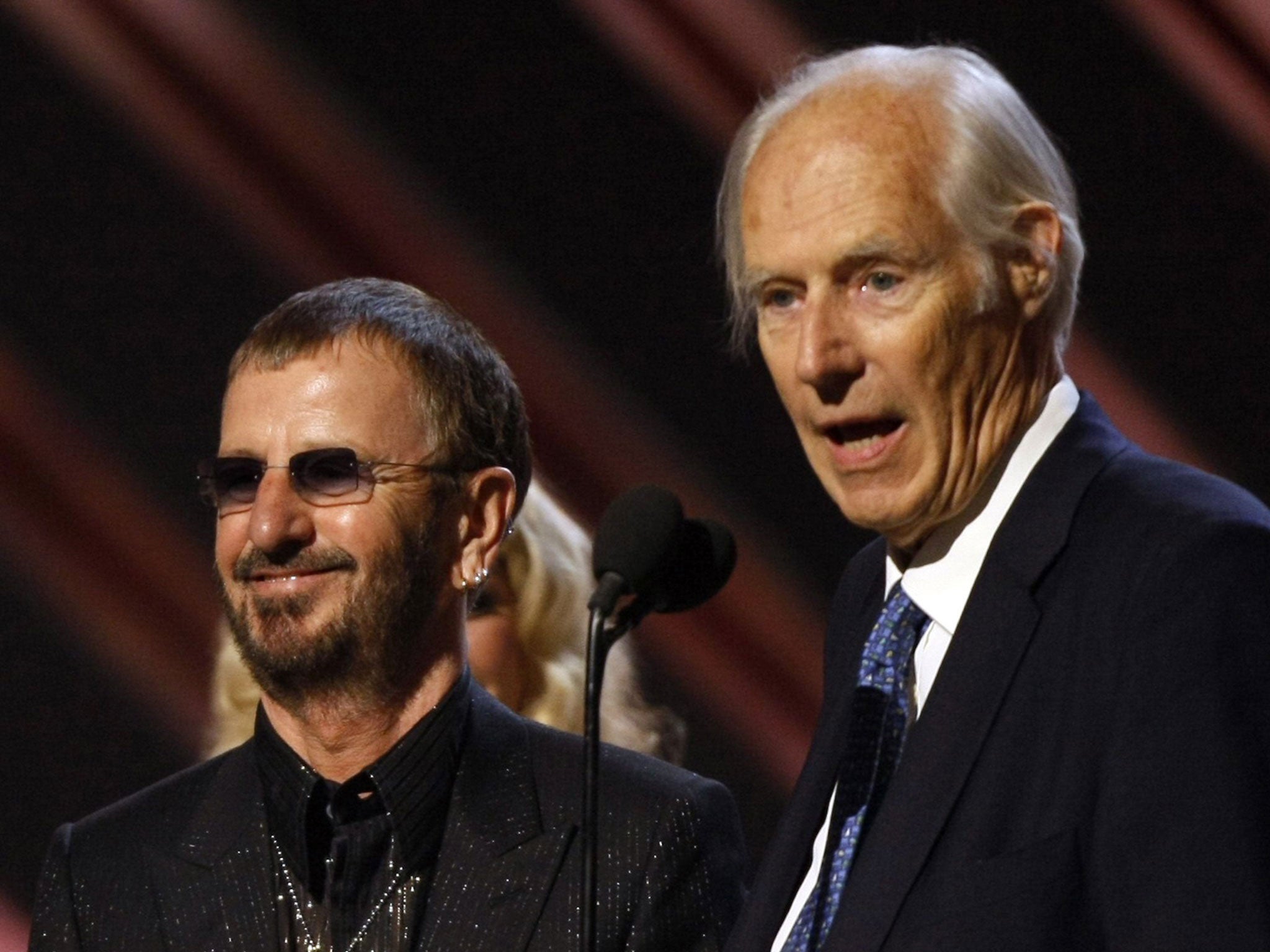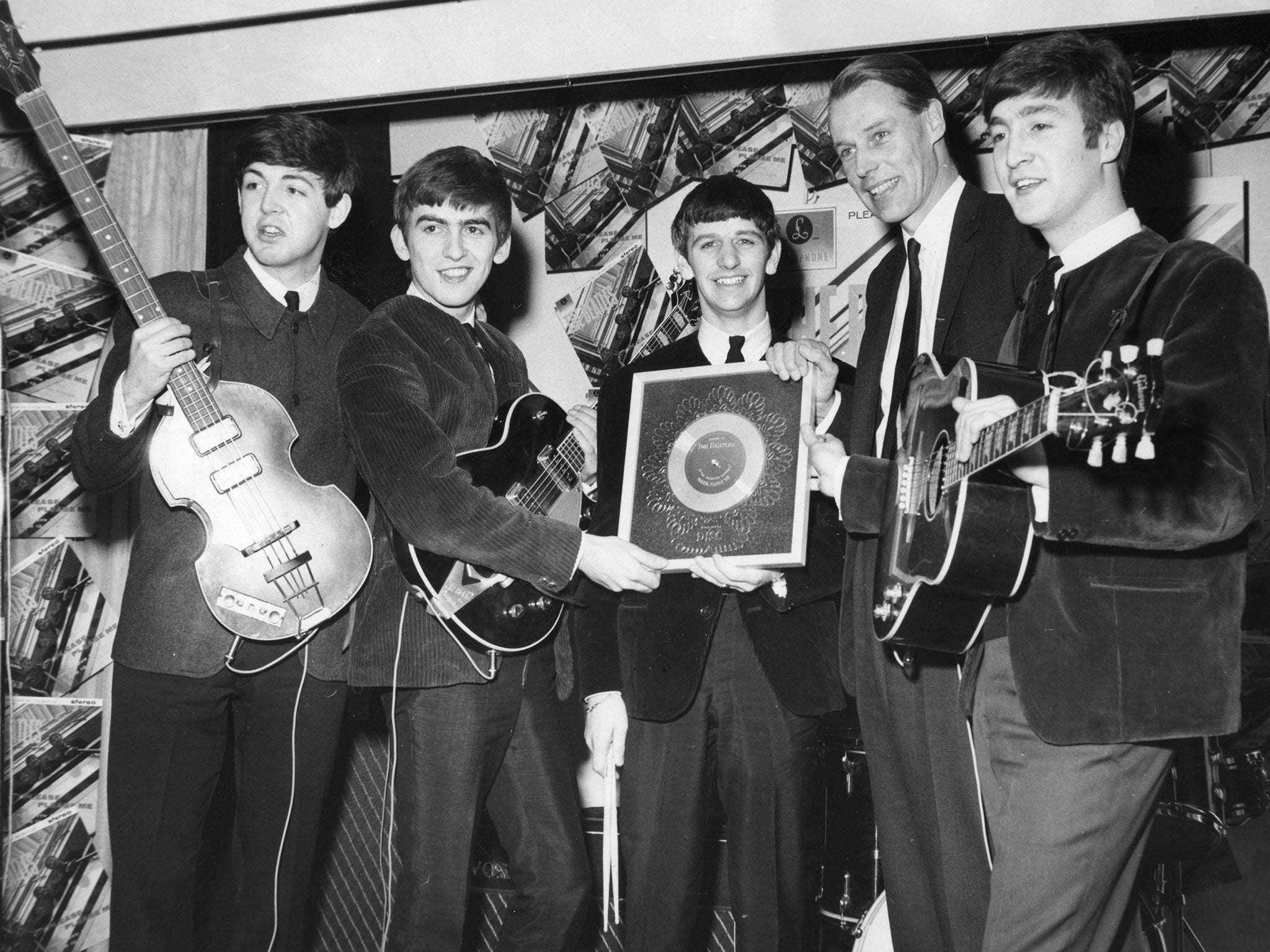George Martin obituary: The Beatles producer who made the Fab Four a worldwide success
Not only did he give the band their record deal, but he brought their visions to life and pieced together their recordings

Your support helps us to tell the story
From reproductive rights to climate change to Big Tech, The Independent is on the ground when the story is developing. Whether it's investigating the financials of Elon Musk's pro-Trump PAC or producing our latest documentary, 'The A Word', which shines a light on the American women fighting for reproductive rights, we know how important it is to parse out the facts from the messaging.
At such a critical moment in US history, we need reporters on the ground. Your donation allows us to keep sending journalists to speak to both sides of the story.
The Independent is trusted by Americans across the entire political spectrum. And unlike many other quality news outlets, we choose not to lock Americans out of our reporting and analysis with paywalls. We believe quality journalism should be available to everyone, paid for by those who can afford it.
Your support makes all the difference.Sir George Martin was the man who made The Beatles.
Not only did he give the band their record deal, but he brought their visions to life and pieced together their recordings from fragments of tape amassed during long hours in the Abbey Road studios.
The Liverpool quartet had been turned down by every record company as they tried to make it in the music business.
But when Martin - then head of the Parlophone label - heard their demo tape in 1962, then attended an audition session, he spotted something special.
There began the partnership which would turn the Fab Four into the world's greatest band and change the face of popular music.
With his genteel manners and refined accent, Martin, born in January 1926, was often regarded as a “toff” who guided the working-class Beatles to fame.
But in reality he was a carpenter's son from Holloway, north London.
He showed an interest in music from an early age, teaching himself to play the piano by ear, and went on to win a place at the prestigious Guildhall School of Music.
Before attending the Guildhall, he spent the years from 1943 to 1948 as an observer with the British Fleet Air Arm, rising to the rank of lieutenant - a period which saw him shed his Cockney accent.
“I've been cast in the role of schoolmaster, the toff, the better-educated, and they've been the urchins that I've shaped,” he said of The Beatles.
“It's a load of poppycock, really, because our backgrounds were very similar. Paul and John went to quite good schools. We didn't pay to go to school, my parents were very poor.
“Again, I wasn't taught music and they weren't, we taught ourselves.
“As for the posh bit, you can't really go through the Royal Navy and get commissioned as an officer and fly in the Fleet Air Arm without getting a little bit posh. You can't be like a rock 'n' roll idiot throwing soup around in the wardroom.”
On his return from service, Martin enrolled at the Guildhall and made a living playing the oboe in bars and clubs around London.
He married first wife Sheena at 22 and they had two children.
His first job after graduation was in the BBC's music library.

From there he moved on to an assistant position at record label Parlophone, a division of EMI, and rose to become its head by 1955, aged 29.
It was there he met second wife Judy, his boss's secretary, with whom he also had two children.
Martin produced jazz artists including Cleo Laine, John Dankworth, Humphrey Lyttelton and Stan Getz.
He was also responsible for comic recordings from the likes of Peter Sellers and Spike Milligan, along with the Beyond The Fringe team of Jonathan Miller, Peter Cook, Dudley Moore and Alan Bennett.
But it was a phone call from music publisher Syd Coleman in February 1962 which changed the course of his life.
Coleman said he had met a man called Brian Epstein, who managed a new band called The Beatles, and would Martin be interested in hearing their demo?
When Martin heard the tape - which featured versions of "Besame Mucho" and "Three Cool Cats", as well as originals such as "Hello Little Girl" and "Like Dreamers Do" - and went on to meet them, he realised their potential.
“I liked them as people apart from anything else, and I was convinced that we had the makings of a hit group,” he said.
But he was not convinced they had songwriting ability.
“As composers, they didn't rate. They hadn't shown me that they could write anything at all,” he told Melody Maker. “'Love Me Do' I thought was pretty poor, but it was the best we could do.”
Nevertheless, "Love Me Do" was the band's first single and reached number four in October 1962.
Follow-up release "Please Please Me" made number two.
Their third single "From Me To You" went to number one in April 1963 - the first of 17 chart-topping hits.
During their time together Martin also composed scores for the Beatles films A Hard Day's Night - which earned him an Oscar nomination - and Yellow Submarine, which was nominated for a Grammy.
After the band split, Martin started his own music publishing company and set about working with other artists.
In the mid-1970s, he began building his famous Air Studios on the Caribbean island of Montserrat.
He worked with the likes of Jeff Beck, Bob Dylan, Sting and Sir Elton John and recorded two of Paul McCartney's solo albums, Tug Of War and Pipes Of Peace.
His awards include two Ivor Novellos and in 1999 he was inducted into the American Rock & Roll Hall of Fame.
Martin co-produced Sir Elton John's "Candle In The Wind", which was released to mark the death of Diana, Princess of Wales in 1997 and sold 37 million copies.
Around the same time he revealed that decades in the music business had taken their toll - he began to go deaf.
He was knighted by the Queen in 1996 and six years later arranged the musical celebrations for her Golden Jubilee.
Martin continued to produce Beatles music to the end of his career.
In 1995 he started work on the Beatles Anthology and in 2006 produced the Love album, a re-working of the band's songs born out of a Las Vegas stage show with circus troupe Cirque Du Soleil and made with his producer son, Giles.
“This is the very last time I shall work on any Beatles' record. I'm 80 years old, for Christ's sake,” he said on its release.
Asked for his favourite Beatles memory, Martin said: “If I had to pick just one it would be in 1966, the first ever time I heard "Strawberry Fields Forever".
“John played it to me on his acoustic guitar. That moment I shall never forget. It was a wonderful thing to happen and it stays with me even now.”
Martin was always adamant that pop and rock could have as much worth as classical music.
“What is the function of rock'n'roll? It's the same as the function of classical music - to make sounds that are appealing to a mass of people and are of some worth,” he once said.
“I'm a person who deals in music, and rock'n'roll happened to be part of it.”
Sir George Martin, record producer: born Holloway, London,3 January 1926; married Sheena Chisholm 1948 (divorced; one daughter, one son); married Judy Lockhart-Smith 1966 (one daughter, one son); died 8 March 2016.
PA
Join our commenting forum
Join thought-provoking conversations, follow other Independent readers and see their replies
Comments